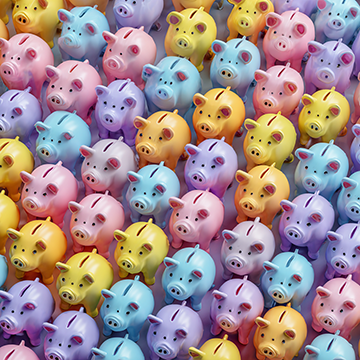
Consumers remain upbeat as retail sales in the main economies show steady growth, despite elevated prices (Exhibit 1). Growing sentiment in the US saw the Consumer Confidence Index (Conference Board) rise to 114.8 in January, up from a revised 108.0 in December. By contrast, consumer confidence in Brazil dropped to its lowest level since May 2023 but is still 5.0 points higher than in January 2023.
US retail and food service sales decreased to $700.3 billion in January, a 0.8% decline from December’s $706.2 billion. Automobile sales in India (which are a proxy for consumer sales) grew by 37.3% to 393,074 units (286,390 in December). Passenger vehicles saw their highest-ever sales in January, posting a growth of around 14% compared with the previous year. Meanwhile, official news from China was that consumption during the 2024 Spring Festival holiday underwent a notable increase.

Inflation’s downward trend is stalling in some advanced economies but continues in the eurozone. The US Consumer Price Index was up 0.3% in January on a seasonally adjusted basis after rising 0.2% in December. Core inflation remained unchanged at 3.9% (annualized) in January. The UK’s Consumer Price Index was also unchanged at 4% in January 2024. Similarly, core inflation was steady at 5.1%; however, services inflation rose from 6.4% to 6.5%. Meanwhile, in the eurozone, headline inflation fell slightly to 2.8% year-over-year in January (down from December’s 2.9%), while core inflation remained elevated at 3.3% but also declined (3.4% in December); producer-price inflation was down –7.3% in December (–6.5% in November).
The situation across emerging economies is more varied: at one extreme, China seeks to tackle deflation; at the other, Russia is battling accelerating inflation, with consumer prices rising in December 2023 and January 2024 by 7.4% year-over-year. In China, consumer prices deflated by –0.8% in January (–0.3% in December), dragged down by declining food prices (–5.9%). Producer prices deflated at –2.5% (−2.7% in December). It’s a more benign situation elsewhere: in India, headline inflation moderated slightly to 5.1% in January from 5.7% in December, while Brazil saw inflation fall for the fourth consecutive month, down to 4.51% (4.62% in December).
February commentary from the International Monetary Fund (IMF) warns that, with China’s real estate downturn now in its third year, housing starts have fallen more than 60% relative to prepandemic levels.1 The pace of decline has unfolded at a “historically rapid pace” seen only in the largest housing busts across countries over the last three decades, according to the IMF. Homebuyers are wary that future prices will decline and that developers lack sufficient funds to complete projects. At the same time, the country’s housing market faces further pressure as demographic change unfolds and urbanization slows. The IMF indicates that housing investment is poised to fall further and will likely remain subdued. Its analysis shows that real estate investment could fall 30–60% below its 2022 level over the medium term, rebounding only very gradually.
Most commodity prices are continuing to ease, though they are at high levels compared with the prepandemic era. Gold appreciated steadily in February, while energy prices continue to rebound.
Source: https://www.mckinsey.com/capabilities/strategy-and-corporate-finance/our-insights/global-economics-intelligence-executive-summary-february-2024?stcr=019113FEBA2F40DA925CFA3C66EBC205&cid=other-eml-alt-mip-mck&hlkid=191a62d1e54148a690dbb0f9f9f1d6b9&hctky=2379611&hdpid=3c0b5a39-aabc-45bf-a41c-bef892de5695












